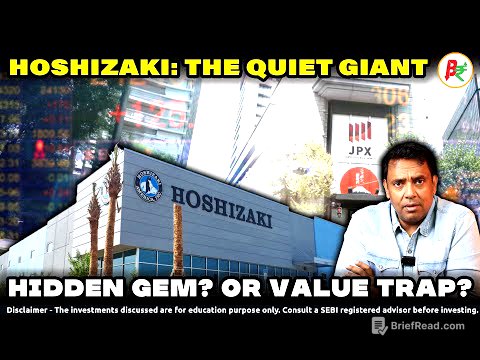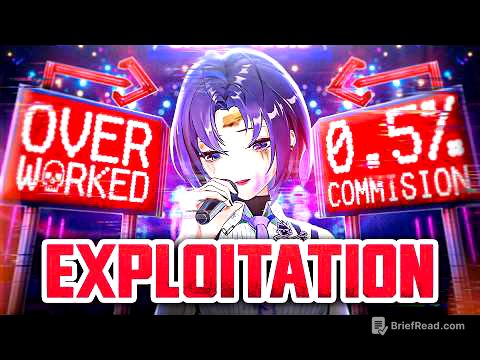TLDR;
Frederick Douglass's speech "What to the Slave Is the Fourth of July?" critiques the hypocrisy of celebrating American independence while slavery persists. He argues that the Fourth of July is a reminder of the injustice and cruelty faced by enslaved people, contrasting the nation's proclaimed values of liberty and equality with the brutal reality of slavery. Douglass denounces the American church and political system for supporting slavery, challenging his audience to recognize the humanity of slaves and to actively work towards abolition. He expresses hope for the future, inspired by the principles of the Declaration of Independence and the growing anti-slavery sentiment worldwide.
- The Fourth of July is a reminder of the injustice and cruelty faced by enslaved people.
- The American church and political system are complicit in perpetuating slavery.
- The Constitution, when properly interpreted, does not support slavery.
- There is hope for the future, driven by the principles of the Declaration of Independence and global progress.
Introduction [0:00]
Douglass begins by expressing his unease and humility in addressing the audience on such a significant occasion. He acknowledges the weight of the topic, especially considering his background as a former slave. He notes the irony of asking him, a former slave, to speak about Independence Day, given the vast chasm between the ideals of freedom and the reality of slavery.
The Meaning of July 4th to Americans [2:03]
Douglass explains that the Fourth of July is a celebration of national independence and political freedom for Americans, akin to the Passover for the emancipated people of God. He expresses gladness that the nation is still young, holding hope that America will learn lessons of wisdom, justice, and truth to guide its destiny. He reminds the audience of the story of their forefathers, who sought redress from the British government due to unjust burdens and restraints.
Praise for the Founding Fathers [10:40]
Douglass praises the Founding Fathers for their resolution to declare independence, which led to the freedom Americans now enjoy. He emphasizes the importance of adhering to the principles of the Declaration of Independence, viewing it as the foundation of the nation's destiny. He acknowledges the courage and greatness of the signers of the Declaration, highlighting their love for their country and their commitment to liberty.
The Present and the Hypocrisy of Celebrating Freedom [17:49]
Douglass shifts his focus to the present, questioning why he, as a representative of enslaved people, is asked to speak about national independence. He points out the disparity between the freedom celebrated on the Fourth of July and the continued enslavement of millions. He asserts that asking a man in fetters to celebrate liberty is mockery, drawing a parallel to historical examples of nations whose crimes led to their downfall.
American Slavery: A Slave's Perspective [24:08]
Douglass declares that his subject is American slavery, viewed from the perspective of the slave. He states that the character and conduct of the nation appear blacker to him on this Fourth of July than ever before. He questions the need to argue the humanity of the slave or the wrongfulness of slavery, as these points should be self-evident.
The Horrors of the American Slave Trade [32:31]
Douglass describes the internal slave trade in America, where men and women are raised like swine for the market. He recounts the sights and sounds of slave droves being transported to slave markets, detailing the brutality and inhumanity of the trade. He shares personal experiences from his childhood in Baltimore, witnessing slave ships and the anguish of enslaved people.
The Fugitive Slave Law and National Hypocrisy [39:57]
Douglass condemns the Fugitive Slave Law, which nationalized slavery and put every man's liberty in peril. He criticizes the law for incentivizing judges to rule in favor of slaveholders and for denying black men the right to testify in their defense. He highlights the hypocrisy of a nation that boasts of liberty while enacting such oppressive laws.
The Role of the Church in Perpetuating Slavery [43:34]
Douglass accuses the American church of being indifferent to the wrongs of the slave and of actively supporting the oppressors. He criticizes ministers who use religion to justify slavery, arguing that their version of Christianity is a curse to mankind. He contrasts the American church's attitude with that of churches in England, which actively worked to abolish slavery.
Inconsistencies in American Politics and Religion [53:41]
Douglass points out the flagrant inconsistencies in American politics and religion, where the nation boasts of liberty and Christianity while perpetuating slavery. He highlights the hypocrisy of supporting fugitives from oppression abroad while hunting down fugitives from slavery at home. He argues that the existence of slavery brands American republicanism as a sham and Christianity as a lie.
The Constitution and Hope for the Future [58:05]
Douglass addresses the argument that the Constitution guarantees and sanctions slavery, countering that such a claim is a slander upon the framers of the Constitution. He asserts that the Constitution, when properly interpreted, is a glorious liberty document. He expresses hope for the future, drawing encouragement from the Declaration of Independence, the genius of American institutions, and the obvious tendencies of the age.
The Power of Progress and a Vision for Jubilee [1:03:17]
Douglass emphasizes the interconnectedness of nations and the power of progress, noting that knowledge and intelligence are penetrating the darkest corners of the globe. He concludes with a fervent aspiration for a year of Jubilee, when the oppressed will be set free and human brotherhood will prevail, quoting William Lloyd Garrison's poem "God Speed the Year of Jubilee".









